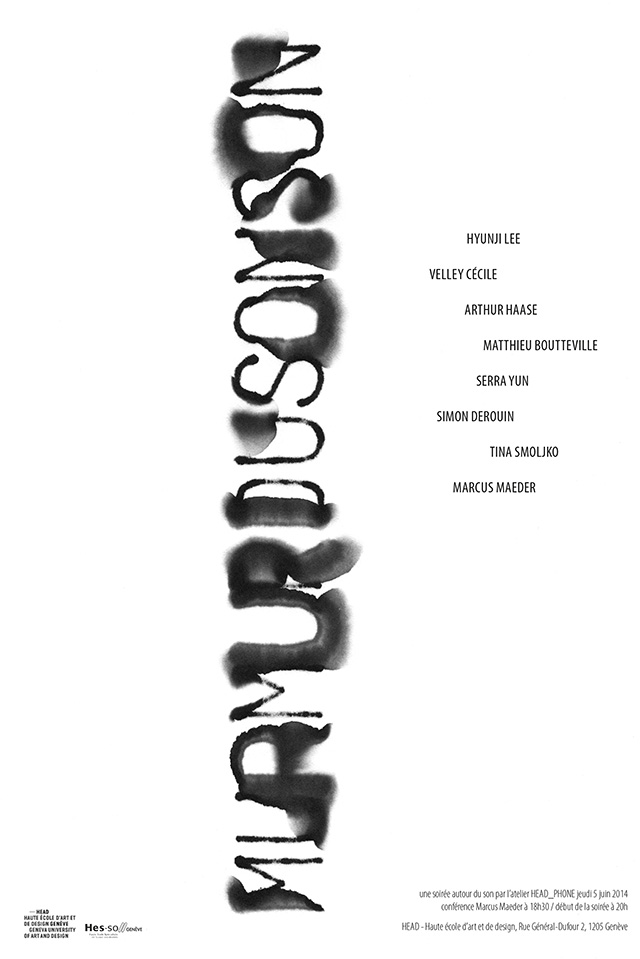Ce jeudi 5 juin, MURMUR DU SONSON – une soirée autour du son des étudiants de l’atelier HEAD_PHONE animé par Vincent Barras, Jacques Demierre, Thierry Simonot
Avec: Hyunji Lee, Arthur Hasse, Matthieu Boutteville, Serra Yun, Simon Derouin, Tina Smoljko, Velley Cécile et Marcus Maeder, invité spécial
Conférence Marcus Maeder à 18h30 / début de la soirée à 20h
HEAD – Haute école d’art et de design, rue Général-Dufour 2, 1205 Genève
—
Sound art, technology and processes in nature
With Marcus Maeder, Research Associate at the Institute for Computer Music and Sound Technology (ICST) of the Zurich University of the Arts (ZHdK) and visiting scientist at the Swiss Federal Institute for Snow, Forest and Landscape Research WSL
Ecological themes have gained importance in contemporary art and artistic research in recent years. Media-, electronics- and installation-based art and music are increasingly embracing concepts such as environmental art, ambient culture and sustainable art. Most works and artistic research projects are concerned with the artistic outlook on environmental and ecological issues with a view to changing the perception of nature. With the latest in sound, media and mobile technologies, in recent years artistic and scientific strategies have been developed to radically extend our perception of the world around us. Highly sensitive sensors and high-definition imaging and sonification techniques are used to transform natural phenomena into a sensory experience.
As a researcher at the ICST, Marcus Maeder investigates the relationships between acoustic emissions in plants and ecophysiological processes. In his current research, Maeder is working on measurements, analysis and artistic representation of ecophysiological and climatic processes and studying the acoustic and aesthetic requirements for making them perceptible. The research project “trees: Rendering ecophysiological processes audible”, a co-operation between the Zurich University of the Arts and the Swiss Federal Institute for Snow, Forest and Landscape Research WSL, combines environmental, physiological and acoustic sensor technology.

